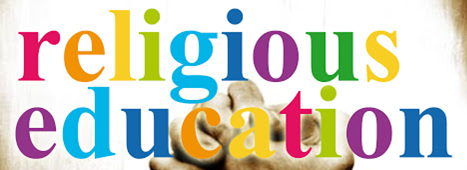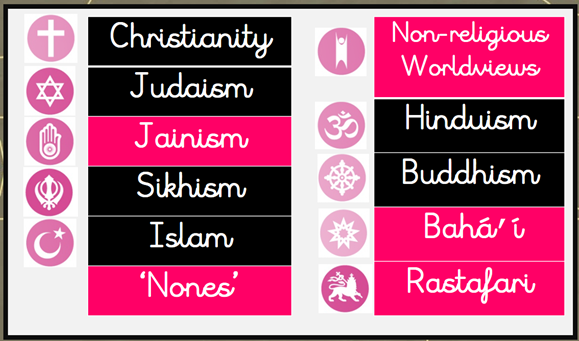Religious Education

Religious Education Curriculum Design Statement:
Intent
At Boldmere, we have a diverse and rich community which we want to acknowledge, learn about and celebrate.
It is our intention that children are taught to reflect on what it means to live in a multi-religious and multi-secular society. We provide children with the opportunity to see the religion and non-religion in the world, and the opportunity to make sense of their own place in that world.
Implementation
Religious Education at Boldmere is taught weekly and is delivered through the Birmingham Agreed Syllabus 2022.
The learning model is broken into 3 layers:
Dispositions:
The syllabus is guided by 24 dispositions which are values or facets of character which provide the first layer of planning and teaching within each lesson. The aim of these dispositions is to represent ‘pluralistic British values and ensure that Birmingham’s children have their hearts and minds expanded so that their lives can be led in a city united through interconnected communities.’ (SACRE / Birmingham City Council 2022)
Dimensions:
These 4 dimensions are; Learning from Experience, Learning about Religious Traditions and Non-Religious Worldviews, Learning from Faith and Non-Religious Worldviews and Learning to Discern. These will assist pupils in developing skills to consider issues, not only from their own perspective but also from an analytical viewpoint.
Content:
The Birmingham agreed syllabus is designed to reflect the fact that the religious traditions, in the main, in Great Britain are Christian however it takes into account the teachings and practices of other principle religions also represented. It is designed around the representation within Birmingham: Bahá’i, Buddhism, Christianity, Hinduism, Islam, Jainism, Judaism, Rastafari and Sikhism, and established non-religious worldviews such as Atheism, Humanism and Secularism.
It also responds to the experience of the growing number of pupils whose families identify as ‘nones’.
R.E is enhanced further through appreciation of key religious festivals and events in our weekly assemblies, through visitors of different faiths and through visits to places of religious worship and/or significance.
Impact
- Provision is effective and constant, achieved through the delivery of a fixed, weekly timetable RE session for all year groups.
- Time has been given to support teachers in the delivery of the new 2022 syllabus with training for staff, training for SLT and RE lead and visits to other schools to see how this is implemented. This ensures a consistent and considered to approach to our delivery of RE. This is strategically planned for to support subject knowledge and delivery.
- As this syllabus is designed as a spiral it provides deliberate sequencing of learning so that children in upper key stage (Y5/6) will be access the 24 dispositions again, at a deeper level – building on their understanding an exploration of the in lower KS (Y3 / 4)






.png)